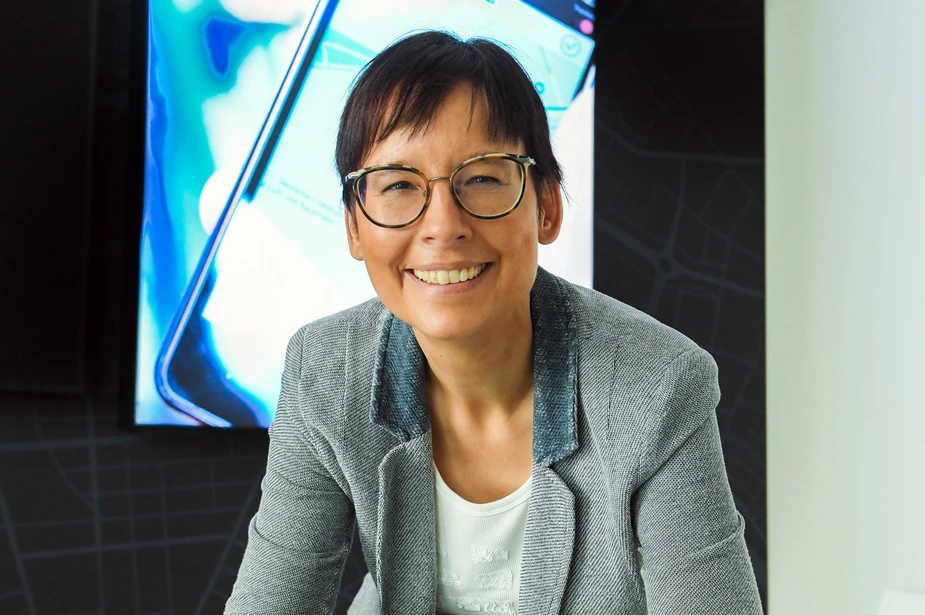The mobility thinker
Meike Jipp develops concepts for the traffic of the future in Adlershof
The bus is right on time. Passengers embark. The bus gets them to their desired destination. Or at least to the nearest point of transfer. It goes without saying that green electricity powers the vehicle. It is also possible that there is no human behind the wheel. “Ensuring mobility while protecting the climate,” is, in a nutshell, what drives Meike Jipp. Is that squaring the circle? Not if you have Jipp's imagination.
“Having an impact on what the world of the future will look like and making sure it will be better one is important to me,” says the 42-year-old psychologist. And another thing: “I am a bad employee.” Lending a hand to her superiors for no good reason is not her thing. She prefers to lead herself. Since April, she has been in charge of about 70 employees at the Institute of Transport Research of the DLR, the German Aerospace Centre. An interdisciplinary team that devotes it entire attention to the question how today’s mobility can be changed to “continue the way it has but in a climate-neutral way.” Jipp: “We make suggestions and give our views. The decisions are made by the policy and the business community.”
She grew up in Wilferdingen, a small community with 5,000 inhabitants on the Eastern slope of the Black Forest. From there, she went to study in Mannheim and Ottawa, Canada. Followed by a brief stint in Lisbon, then San Francisco, Braunschweig, now Adlershof. Jipp was a frequent visitor here when she started working at the Braunschweig-based DLR Institute of Transportation Systems in 2014: “Every time, it felt like there were five new research facilities, ten new buildings. I was extremely impressed with how it developed.”
Despite the many stages of career, she discovered the field of work that would fascinate her for a long time fairly early on: the interface between psychology and engineering. How do humans interact with technology? How can it be optimised to their needs? In her PhD thesis, she dealt with the issue of how to teach an automatic wheelchair to go in the direction its driver wants by reading their eye movements.
The relationship between people and technology as well as the well-being of the user with the vehicle will also determine the success of the transition to cleaner traffic: “I have to convince people to get on a bike or a bus instead of their car.” Why not have buses with wellness zones? Or workplaces that are equally designed for video conferencing? Public transportation systems that are extensive, attractive, and flexible. If this can be achieved, cars will be a rare sight on the streets.
These are the predictions of an expert who enjoys walking herself. The Harz Mountains have 222 places where hikers can have their completed routes certified. Jipp has done them all in three and a half years. She has since won the right to go by “Hiking Empress of the Harz Mountains”.
Winfried Dolderer for Adlershof Journal
